Between Heaven and Hell (1956)
“I’ve heard about you, Gifford. First you go get yourself a silver star, then you get busted to private. Oh, it’s a rough war, ain’t it?”
|
Synopsis: |
|
Genres, Themes, Actors, and Directors:
Review:
— comes across as somewhat heavy-handed, given that the brief flashbacks to his life as a callous plantation owner (married to Terry Moore) aren’t lengthy enough to give us a really good sense of who Gifford once was (or why). Much more effective is director Richard Fleischer’s ability to show us how the random brutality of wartime violence — starting with the death of his beloved father-in-law (Robert Keith): — has a deeply powerful effect on Wagner’s psyche; the type of PTSD he experiences wasn’t explored nearly enough in other wartime films of the era. Broderick Crawford is appropriately unhinged as a Kurtz-like commander slowly going off the deep end (with a weirdly homoerotic attachment to his two buff young henchmen, who often roam around shirtless): My favorite performance in the film, however, is given by Buddy Ebsen as Wagner’s lower-class “buddy”, who quietly befriends him and helps him see the good in himself. Much less fortunate is the casting of Harvey Lembeck as — what else? — an obnoxious wiseacre; fortunately, his role is relatively small. Note Hugo Friedhofer’s Oscar-nominated score, which draws heavily — and to nice effect — upon the “dies irae” motif. Redeeming Qualities and Moments: Must See? Links: |
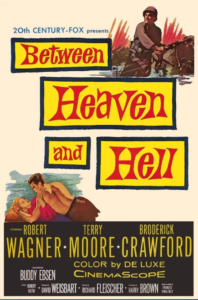
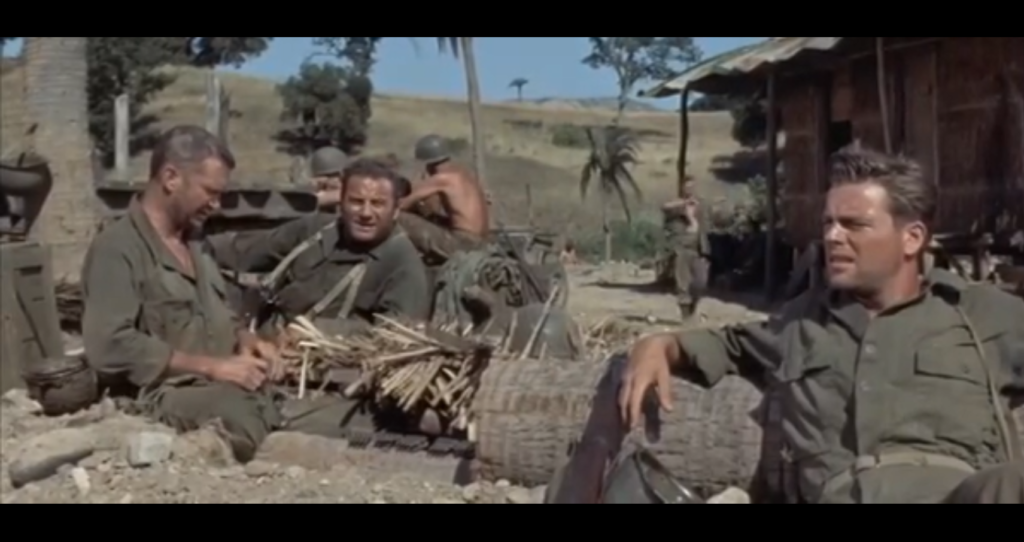
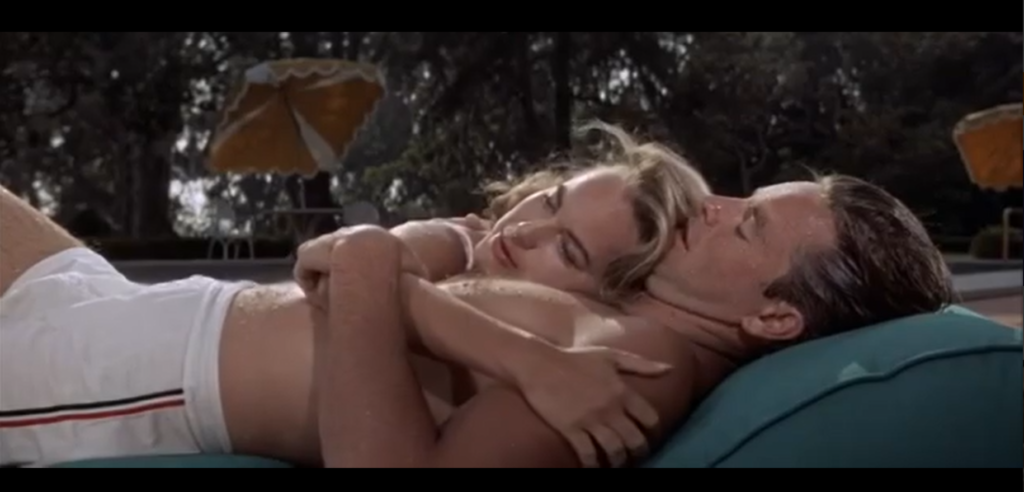
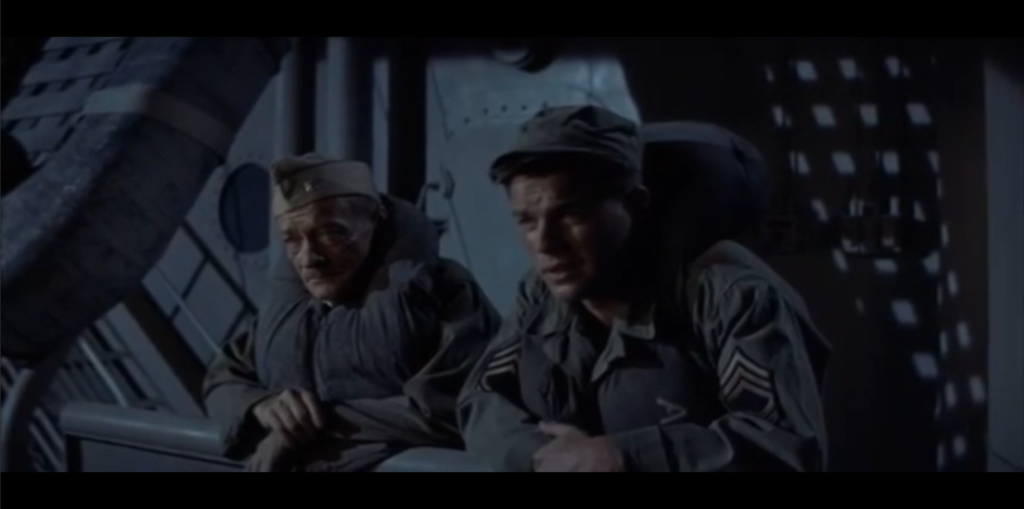
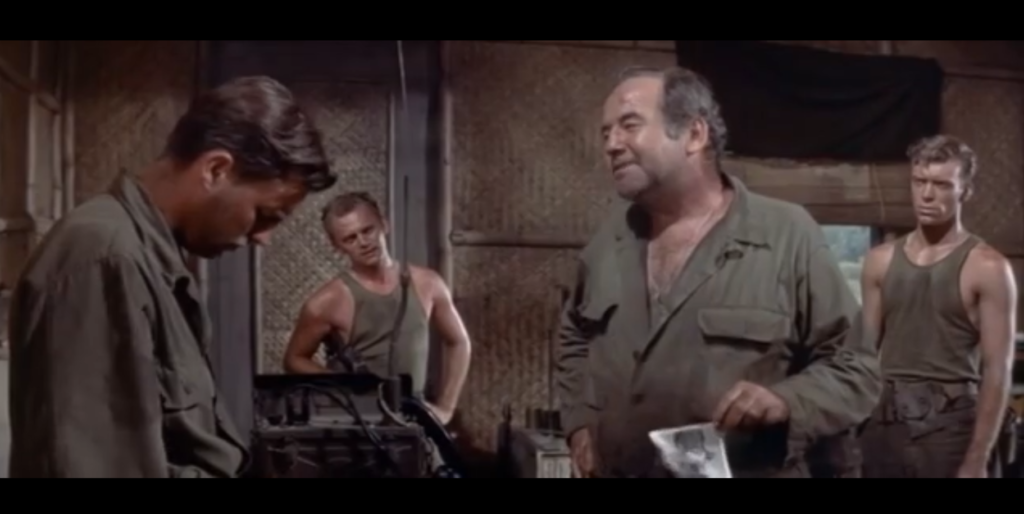
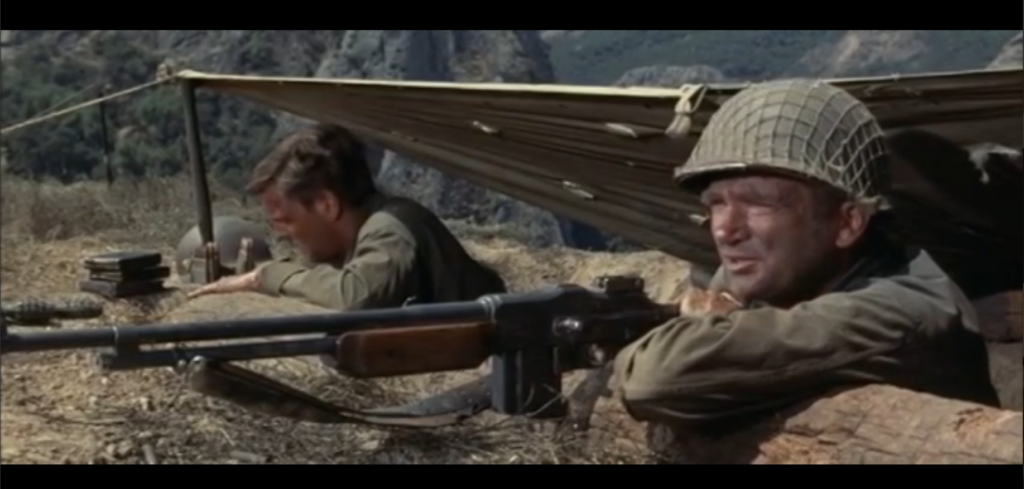
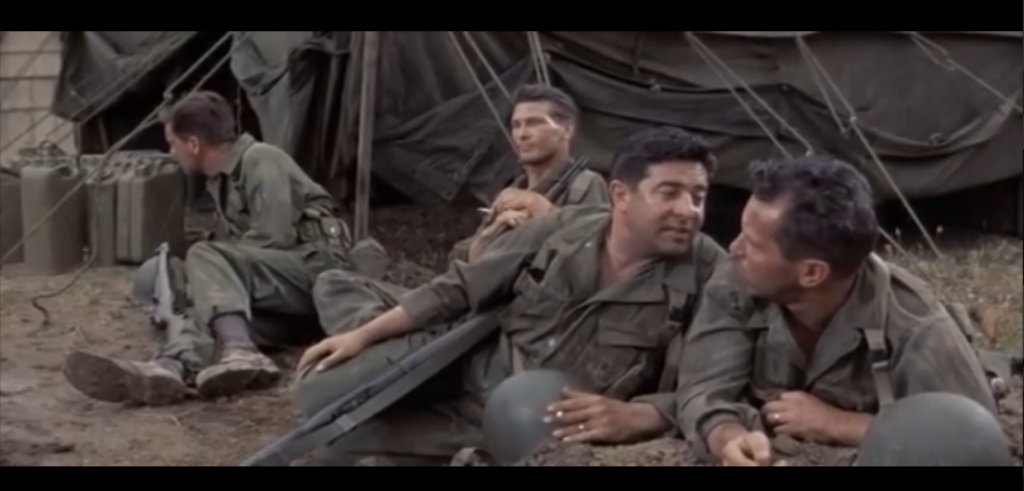
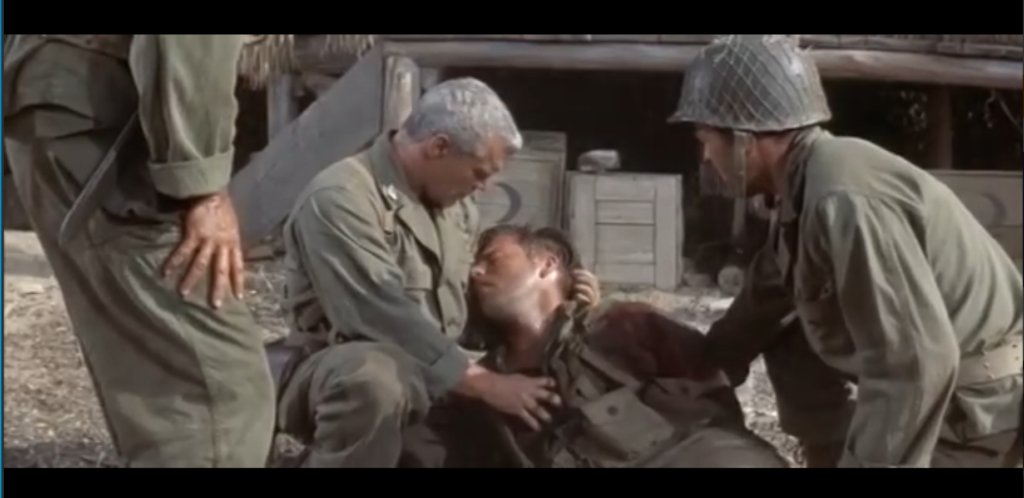
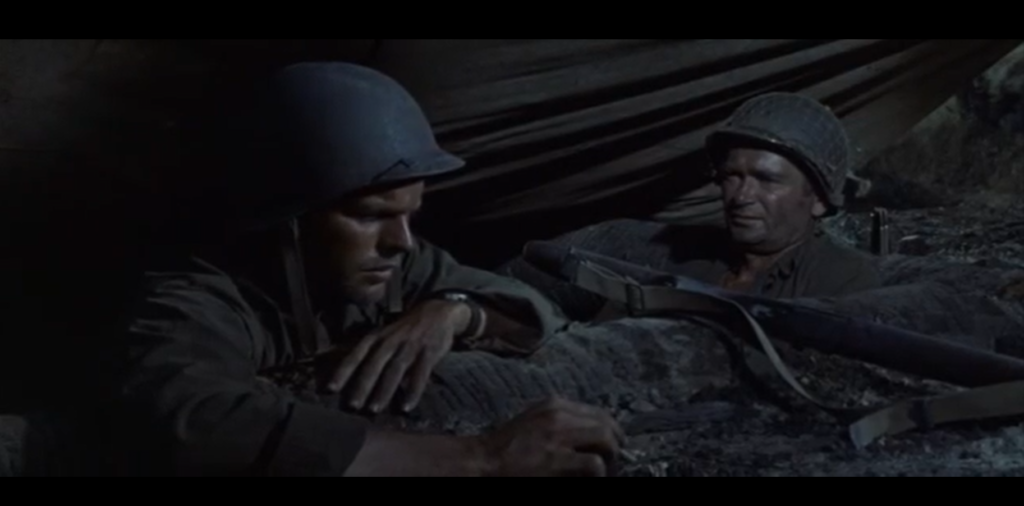
One thought on “Between Heaven and Hell (1956)”
First viewing. Not must-see, though it’s not a bad war film and it’s distinguished by Fleischer’s direction. As per my post in ‘The ’40s-’50s’ in Film’ (fb):
“And I found three friends in the army. I never had any real friends before.”
‘Between Heaven and Hell’ (1956): Based on a novel by Francis Gwaltney (who served in a National Guard regiment in the Philippines during WWII – and whose first name is used disparagingly as protagonist Robert Wagner’s second name), this may not be among the best war movies ever made but it’s fairly compelling nevertheless. Essentially it’s the story of a privileged asshole (Wagner) whose nightmarish experience of war cures him of… assholism. The film doesn’t purport to be a document of any specific historical event; instead, it relates some of the horrors of war in general. In that regard, it shows certain aspects we don’t often see in war films: individual sniper attacks; friendly fire; uncanny voice manipulation from ‘the enemy’, etc. It also has a peculiar ‘subplot’ in the blustering commanding officer played by Broderick Crawford. I’m not saying the character is gay… necessarily… but the film certainly suggests things difficult to suggest in 1956: BC’s ‘tough guy’ – who clams to be married but isn’t and who also seems somewhat off his rocker – is clearly a coward putting on a false front. That ‘front’ seems to clearly include at least two enlisted men who are close to him and, therefore, seem to share ‘an understanding’ (those guys themselves may not be gay but, hey, if you do a closeted CO favors in wartime, it gets you somewhere). This ‘subplot’ reaches its, um, climax when one of Crawford’s boys is suddenly killed and Crawford begins to quietly weep (like a lover) and awkwardly shuffle off to be alone (!). While it’s unusual seeing this story tucked away in the larger story that’s rather well-directed by Richard Fleischer, it’s another reason this film is a bit… different from the norm.